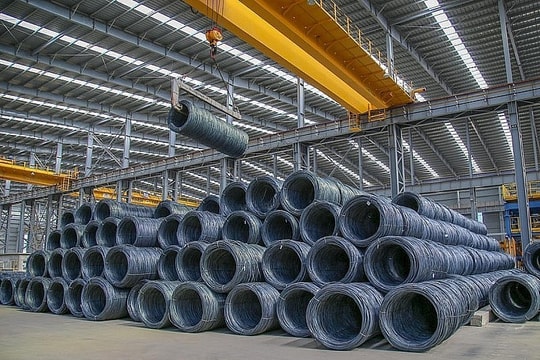Interesting experiences in Cua Lo at dawn
(Baonghean.vn) - Buying fresh seafood as soon as the boat docks, pushing the boat with fishermen, watching fishermen quickly remove fish and crabs from the net; enjoying fragrant grilled fish right next to the charcoal stove at the fishing wharf... are interesting experiences for tourists when coming to Cua Lo.
Dawn market in Nghi Thuy fishing village

At 5am, the light was still not clear, the sun had not yet risen from the sea, and the fishing boats from offshore and nearshore had just arrived. The boats carried fresh fish, crabs, squid, shrimp, and crabs. At the wharf, hundreds of people with baskets, trays, plastic crates, shoulder poles, and carts were waiting.
As soon as the boat engine stopped, they quickly rushed down to the port. Everyone went about their business. The iron ladder used as a winch was pulled out, a few people quickly got on the boat, measured the seafood into baskets, then pushed it down the winch. Below, others quickly transferred the seafood to shore. Baskets of fresh, sparkling mackerel, scad, silver pomfret, snapping mantis shrimps, striped shrimps, and iron shrimps with still-blinking eyes... had just been put down when dozens of people surrounded them, choosing, bargaining, and following the traders to the market.
Experiencing the fishermen's work rhythm, tourists seem to immerse themselves in the urgent, busy atmosphere; being energized by their crisp laughter and sparkling eyes of joy after each trip to shore.
Nghi Thuy fishing wharf market starts before dawn, and the sun has already set. Tourists who want to experience it have to come to the market quite early. Although it is a bit of a “time zone difference”, the tourist season, from the end of March to July, the market is bustling with tourists every morning.
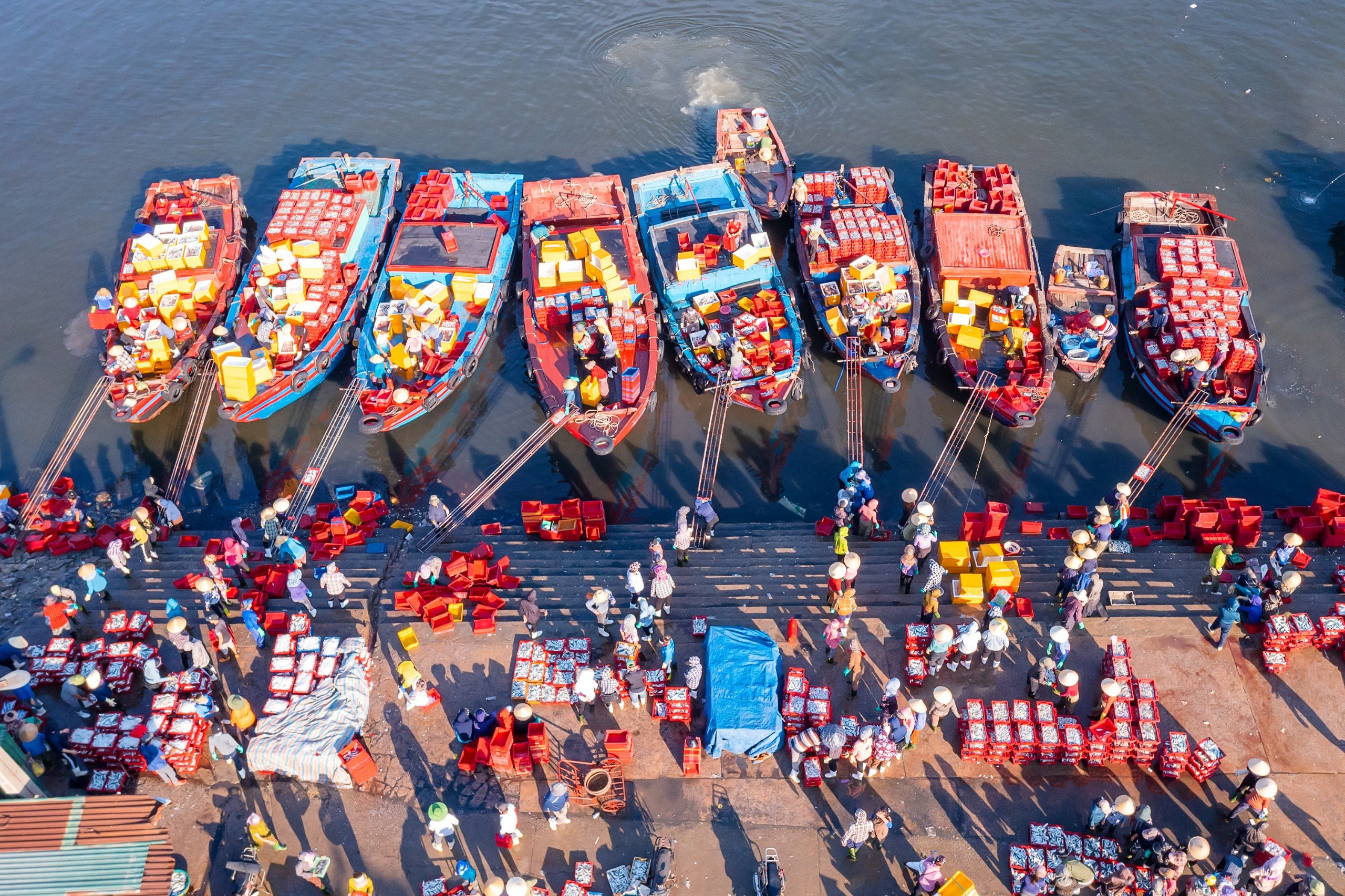
Ms. Nguyen Bao Tram - a tour guide of a travel company from Phu Tho said: "We introduce to every group of tourists coming to Cua Lo about the experience points such as the fishing wharf and the fishing wharf market. Most of the tourists are very excited and during their stay in Cua Lo, they arrange to visit the fishing wharf market to experience. Thanks to these destinations, in addition to relaxing, swimming, and enjoying seafood, tourists have more interesting experiences."
To serve tourists, in recent years, Cua Lo town as well as Nghi Thuy ward have invested in upgrading items at the fishing port and fish wharf market: drainage system, building more kiosks and stalls; installing trash cans, lighting...
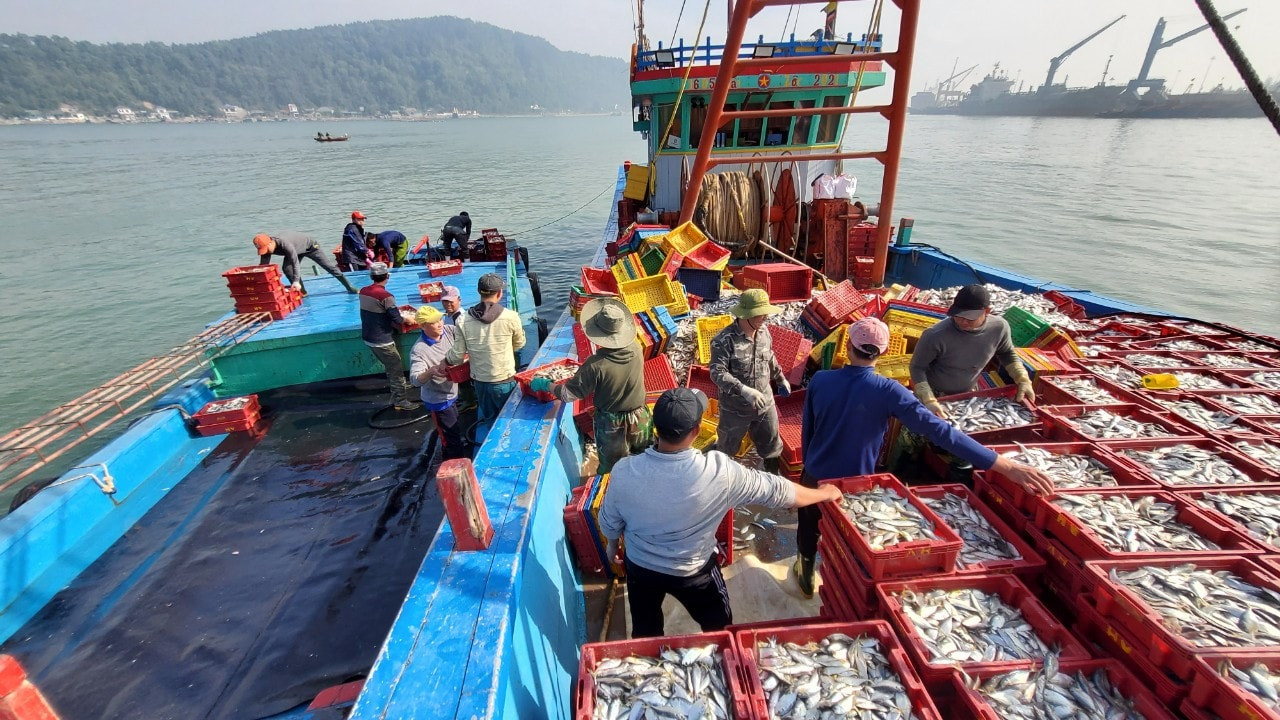
In particular, fishermen as well as traders at the fish wharf market, in addition to maintaining the simplicity and sincerity of the people of the coastal village, are also trained to raise their sense of civility and politeness in serving tourists. That is, not "screaming prices", not soliciting customers, selling fresh seafood, serving customers enthusiastically and thoughtfully... Thanks to that, the number of tourists coming to the fish wharf market to explore is increasing.
Mr. Nguyen Cuong - Head of the Fish Wharf Market Management Board said: "The market operates every day of the year, but is busiest during the peak tourist season. Visitors come here, in addition to choosing fresh seafood to enjoy and give as gifts to relatives, but also to experience the rhythm of fishing village life. Every day, the market welcomes hundreds of visitors to explore and experience."
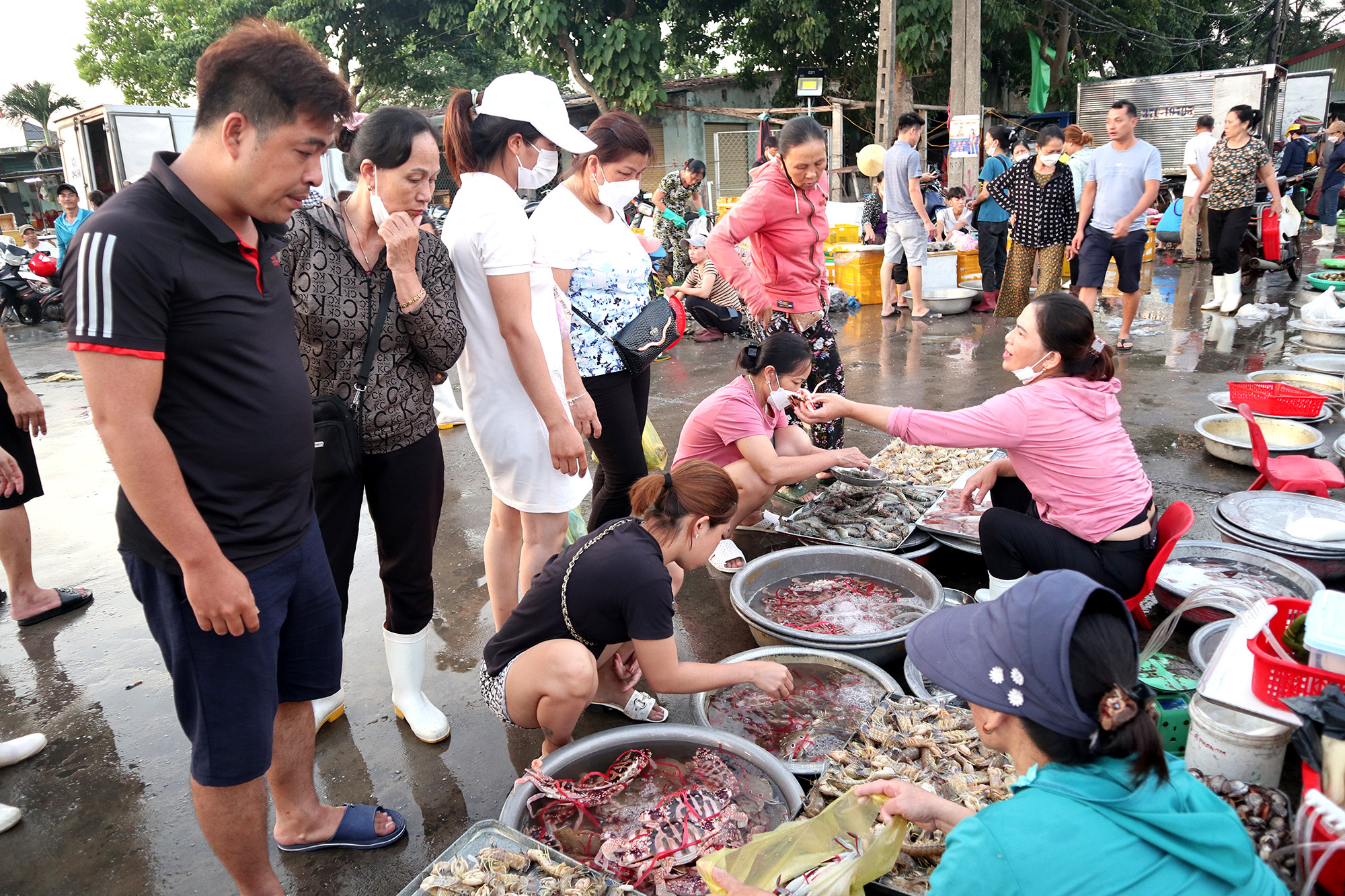
Thanks to that, fishermen and traders at the fish wharf market have an additional source of income. “They come to visit, to play, to take photos. Seeing the fresh seafood at reasonable prices, they buy a lot as gifts. In addition to selling seafood, services such as selling ice, selling foam boxes, packaging, transportation, electric cars, etc. have created jobs and stable income for many local workers,” said Mr. Nguyen Tien Loi - Chairman of the Farmers' Association of Nghi Thuy Ward.
Pull the net and remove the net together.fishermen
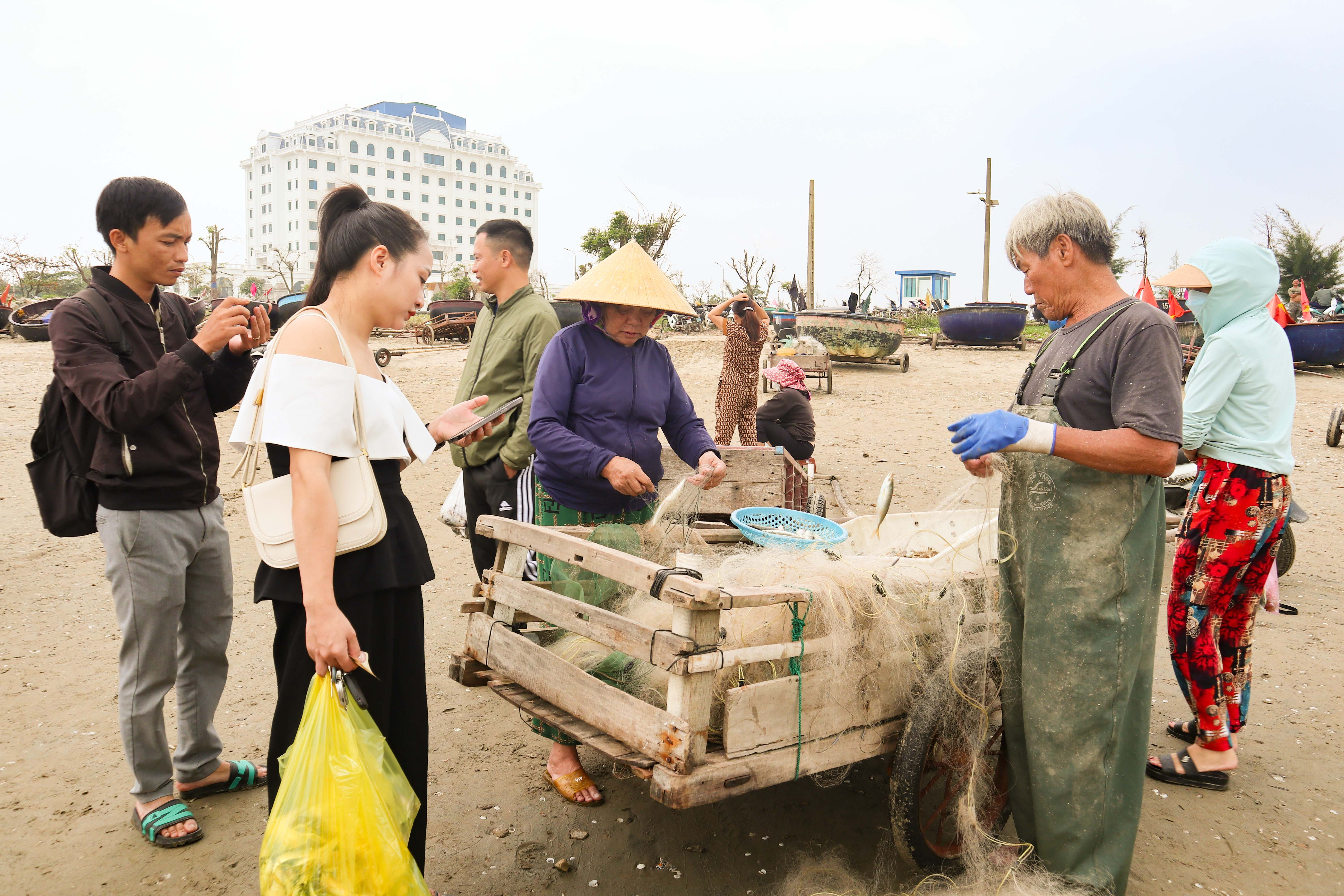
Having just joined the fishermen in removing the nets on the first trip of the day, Ms. Phan Kim Lien - a tourist from Hue, just livestreamed on her phone. “Currently, Lien is at Cua Lo beach, on Lan Chau island. Fishermen have just returned after a night at sea on this sampan. Shrimp, fish, crabs, and crabs are caught in the nets. People remove them, put them in pots and sell them to tourists right at the beach.
Although I have been to many places, experienced many things, and discovered many things, working with fishermen to remove nets, choosing my favorite shrimp and fish, bargaining with them, bringing them to the restaurant to have them prepare and enjoy them is really interesting," the gentle, leisurely voice of a Hue girl makes people around pay attention. Thanks to people like Ms. Lien, who come to experience and spread the word, more and more people know about the fishing profession of fishermen in Nghi Thu, Thu Thuy, and Nghi Thuy wards.
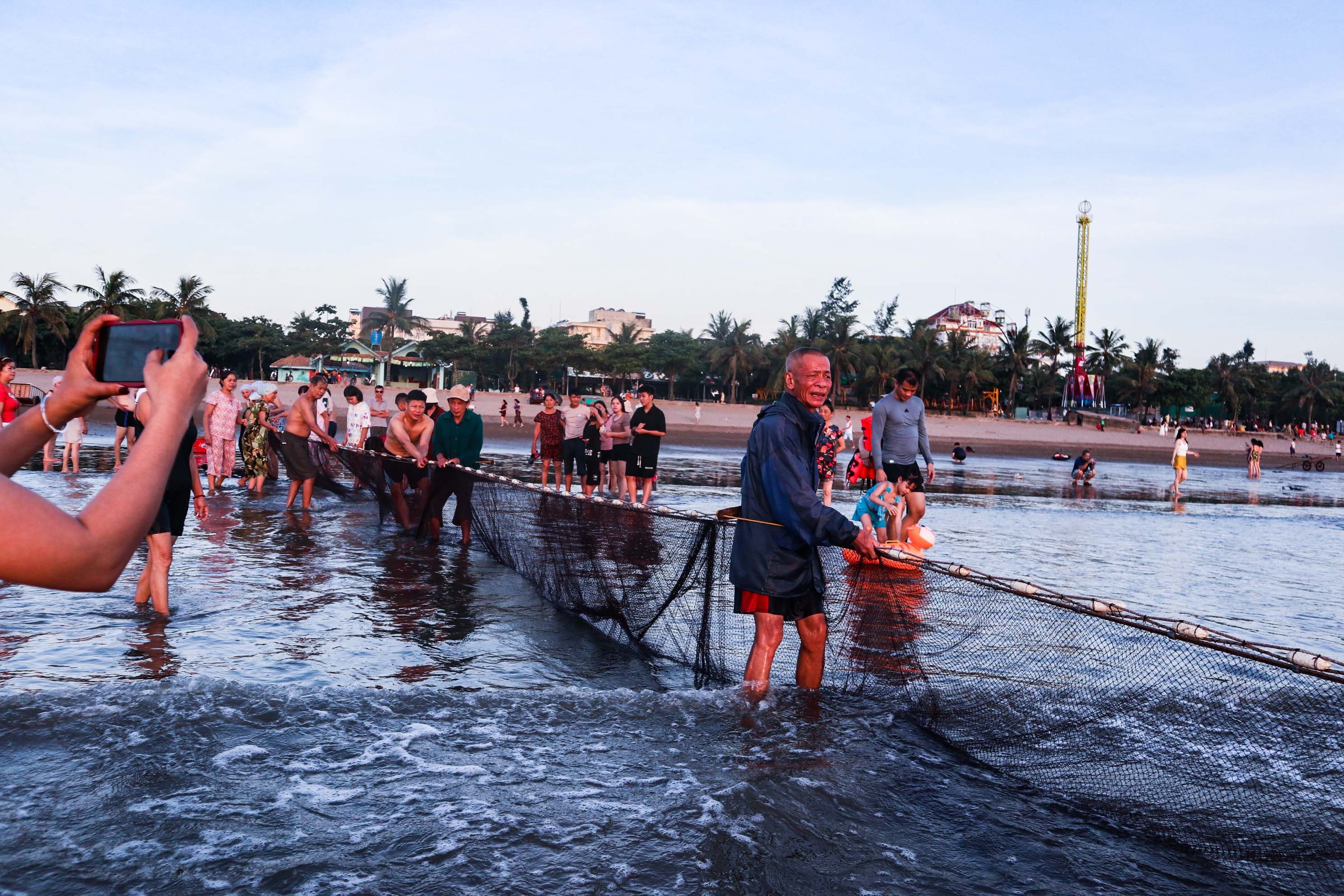
No need to wake up too early to go to the fish market, around 8am, the boats of fishermen from the wards return after a night fishing trip, tourists can join the fishermen in removing nets, buy fresh seafood. "Close to shore fishing, so you go quickly and come back quickly. Going out at 2-3am, you will arrive at the shore at 7-8am. The seafood is still fresh, not iced, not frozen, so tourists love it," said Mr. Nguyen Huu Sang - an old fisherman in Thu Thuy ward.
According to statistics from the Economic Department of Cua Lo town, the whole town currently has about 300 registered boats operating. Of which, they are mainly concentrated in Thu Thuy ward (139 boats), Nghi Thuy ward (70 boats), Nghi Tan ward (30 boats)...
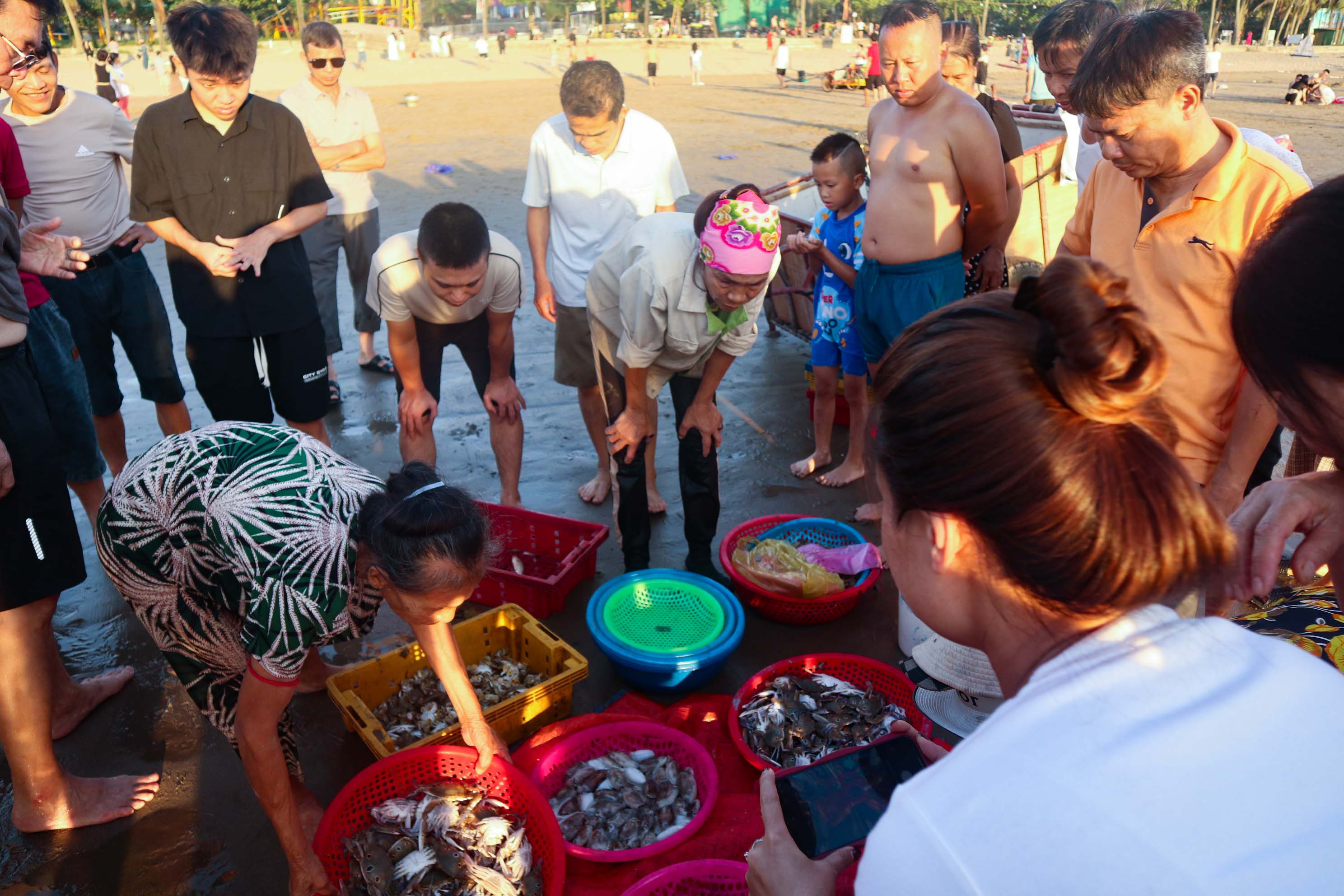
Although the income from fishing in a bamboo basket is not as high as that of offshore fishing, the capital investment is small and the trip and return is the same day, so it is still the livelihood of many people in Cua Lo town. In addition to catching seafood, the craft of fishing in a bamboo basket also enriches the culture of the fishing village. Tourists love it when they go to the beach every morning to watch fishermen unload their nets and buy fresh seafood as soon as the boats dock.
Coming to Cua Lo, tourists are also quite excited to witness the scene of pulling the net on the beach every morning. This is a way to exploit seafood near the shore, usually lasting from January to September of the lunar calendar, the time when the sea is calm. Each group pulling the net has about 13-15 people. After dropping the net, dozens of people bend their backs, their feet dig deep into the sand, and bend their backs to walk backwards to drag the two ends of the net from the sea to the shore. Tourists who are bathing or walking along the beach enjoy joining hands to pull and remove the net, and shout with joy when the nets are heavy with fish and shrimp.
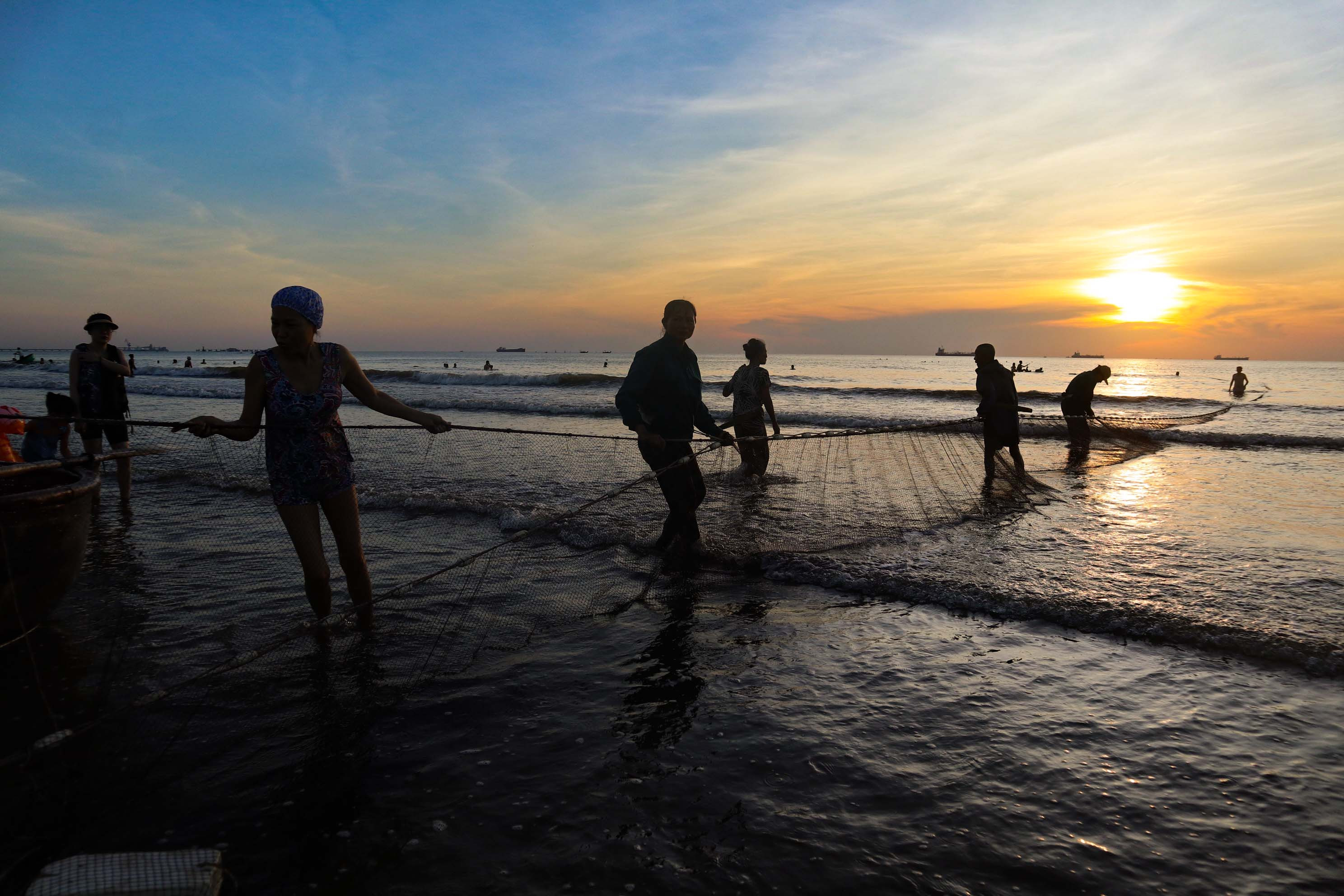
“As far as I know, trawling requires collective strength, solidarity and mutual understanding. Therefore, tourists like us are very excited about this experience. Currently, only a few coastal localities still maintain this form of exploitation. In my opinion, if we know how to exploit trawling into an experience service, fishermen will have more income; the traditional profession of our ancestors will be preserved…”, said Mr. Hoang Ngoc Hoa - a tourist from Thanh Hoa.

